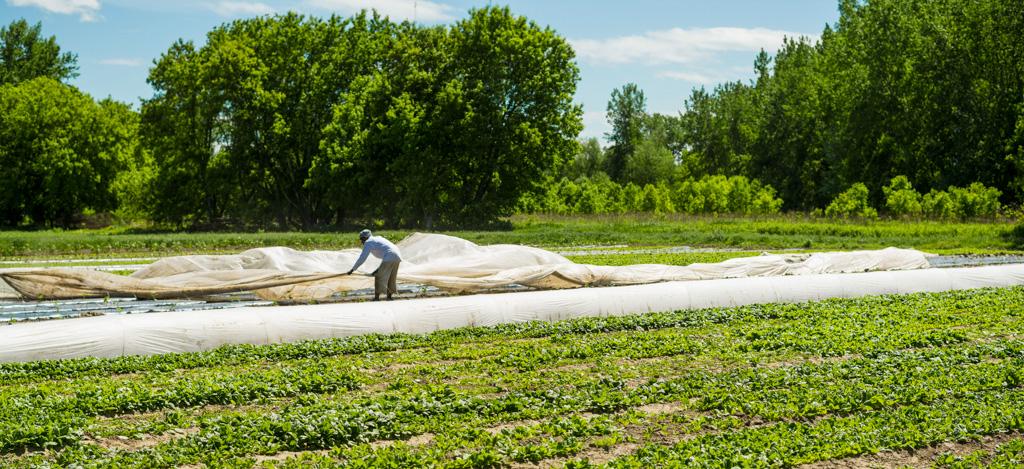July 10, 2025
A recent federal judge’s ruling allows the Northeast Organic Farming Association of Vermont (NOFA-VT) to help defend the state’s Climate Superfund Act. The American Petroleum Institute, the U.S. Chamber of Commerce, and a coalition of twenty-four Republican-led state’s attorneys general are challenging the first-of-its-kind law that was passed to protect the wallets of Vermont families and businesses who are currently paying soaring costs to repair damage and fund adaptation projects after extreme storms caused by climate change.
“We are grateful to be standing in support of our state’s passing this critical legislation. While we have all in Vermont already been deeply impacted by climate chaos, our farmers are on the frontlines, navigating record storms while keeping us all fed,” said Grace Oedel, NOFA-VT's Executive Director. “The Climate Superfund law would help to remediate the incredible burden these farmers are shouldering. We know what has caused climate chaos, and it’s fair for fossil fuel companies to bear some of the cost of climate adaptation in Vermont. It’s long been time for this kind of law.”
The Conservation Law Foundation (CLF) has also been granted authority to defend Vermont's Climate Superfund. According to Elena Mihaly, CLF Vice President for Vermont, “The fossil fuel industry’s polluting products are damaging our climate and our communities, and its attempt to avoid accountability is an insult to Vermonters. The Climate Superfund law protects Vermont’s families and businesses who are forced to shoulder the skyrocketing costs of storm damage, recovery, and climate adaptation. It’s time for fossil fuel corporations to stop escaping responsibility for the cost of climate adaptation—communities shouldn’t be left to pick up the tab alone.”
NOFA-VT is represented by attorneys from the Natural Resources Defense Council and Stris & Maher LLP. CLF will be represented in this effort by its own legal counsel and attorneys at the Natural Resources Defense Council.
Passed in May 2024, the law requires the largest fossil fuel companies to pay for a share of climate change adaptation costs attributable to their products and activities from 1995-2024. As more states, residents, and businesses face mounting costs from intense storms fueled by damaging fossil fuel pollution, lawmakers are proposing or passing legislation similar to Vermont’s law. New York became the second state to enact a climate superfund law in December, and at least 10 other states have legislation pending. A federal Polluters Pay Climate Fund Act is stalled in Congress.
####

